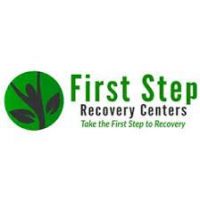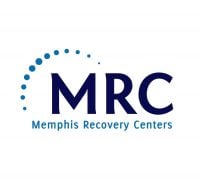CMI - Case Management Inc
Drug Rehab Center in Memphis, Tennessee
CMI - Case Management Inc provides evidence-based addiction recovery services with a comprehensive continuum of care, including detoxification, residential and outpatient treatment, individual/group therapies, aftercare, family support, and innovative treatments.
Multiple patients have reported CMI - Case Management Inc as permanently closed.
Research other rehabs in Memphis, Tennessee, or get help finding an open facility.
About CMI - Case Management Inc in Tennessee
CMI - Case Management Inc in Memphis, Tennessee provides comprehensive addiction recovery services through a comprehensive continuum of care. An evidence-based model of care, CMI - Case Management Inc is focused on helping clients move from recovery to living a healthy, productive life. CMI - Case Management Inc offers a range of services ranging from detoxification to residential treatment, outpatient treatment, medication-assisted treatment, individual and group therapies, comprehensive discharge planning and aftercare, and family education and support.
CMI - Case Management Inc offers an individualized approach to recovery, focused on addressing the unique needs of each client. Services include drug and alcohol assessments, individual counseling, peer-support groups, relapse prevention, life skills development, and family counseling. Their team of dedicated counselors and case managers offer a safe and supportive environment to address addiction issues and to help clients build a strong support system.
In addition to their core services, CMI - Case Management Inc is committed to providing the best quality of care and has achieved accreditation by the Joint Commission, the nation's leading healthcare accreditation agency. CMI - Case Management Inc has also been recognized by the Tennessee Association of Alcohol and Drug Abuse Counselors for its commitment to the highest standards of excellence in addiction treatment. The team at CMI - Case Management Inc is continuously exploring innovative treatments and strategies to ensure their clients receive the best possible care.
Genders
Ages
Modality
Additional
Conditions and Issues Treated
Opioid addiction has become a significant health problem in the United States. In 2015, there were 91 opioid overdose-related deaths per day, with a substantial increase in mortality rate in 2014.
When opioid addiction has reached a point where a person’s life becomes unmanageable, treatment options are available to help them get sober. Treatment that includes medical care with medications and counseling can help a user transition into sobriety.
When someone in struggles with both addiction and mental or emotional illness, this is considered a dual diagnosis. Dual diagnosis treatment can include therapy for these issues to happen simultaneously, which will allow either of them to be treated effectively.
Sometimes people who have suffered from addiction disorder also suffer from co-occurring disorders such as depression, anxiety, bipolar disorder, etc., making them “dual diagnoses.” Dual diagnoses require specialized treatment programs where drug and alcohol addiction are addressed along with psychiatric illnesses. Some rehabilitation facilities provide patients suffering from cooccurrences a program with highly integrated services and a clean environment with few distractions to help them succeed.
Levels of Care Offered
This center offers a variety of custom treatment tailored to individual recovery. Currently available are Aftercare Support, Drug Rehab, Dual-Diagnosis, Inpatient, Intensive Outpatient, Outpatient, with additional therapies available as listed below.
Inpatient treatment for alcoholism or drug addiction is an option that provides the addict with a supportive environment in which they can stop using. After detox, an inpatient treatment center provides a structured environment for the addict to recover from their addiction and begin taking steps toward a lifetime of sobriety.
This type of treatment is appropriate for addicts that are most in need of intensive care and supervision. This includes those who were unable to quit on their own, those who need more structure than they can get in outpatient treatment, and those whose addiction has led them into legal trouble or severe health problems.
The Intensive Outpatient Program offered by CMI - Case Management Inc is designed for those who need intensive care but would rather get it in the comfort of their own home. The treatment programs vary in duration and intensity and can be tailored to suit the patient’s needs. The program includes regular visits to the facility, though the overnight stay is not needed. IOP is suitable for patients who have been treated in residential treatment programs and are in the transition phase. It helps the patient live at home and discharge some work or school responsibilities even while undergoing treatment. The patients gradually get back to their routine life with the support of a friend or family member.
Outpatient treatment is often used for drug addicts in drug rehab. Outpatient treatment consists of counseling and therapy sessions. This form of treatment is also called ‘day-treatment’. The outpatient treatment process begins with the addict’s initial detox period, lasting about ten days.
Outpatient treatment is used for those who are at moderate risk for ‘slipping back’ into the addiction, for those who:
- Are not currently experiencing any side effects from withdrawal and can handle social pressure
- Can handle stressors that might trigger relapse
- Have a stable living environment or have moved out of their previous environment, which was not conducive to being sober
- Have a support system that allows them to go to a facility a few times a week while still keeping their current responsibilities
- Have no legal obligations, being either on parole or probation, that require them to seek treatment at a mandatory facility
- Are not currently experiencing any side effects from withdrawal and can handle social pressure
- Have a stable living environment or have moved out of their previous environment, which was not conducive to being sober
Completing a drug or alcohol rehab program is only the first step. Then comes aftercare support. These services include sober living accommodations, career counseling, and AA/NA programs for those struggling with sobriety or who want help maintaining it after initial rehab at an addiction facility.
They can last up to a year or more depending on what’s needed most urgently after the earlier stages are completed.
Therapies & Programs
Because no single treatment is effective for all addicts, the goal of treatment and therapy should be to figure out what works best for each individual. Tolerance and withdrawal levels differ from person to person, affecting the treatment intensity required. Addiction treatment should aim to help addicts develop healthy coping mechanisms for dealing with their addiction and its underlying causes.
Family therapy is beneficial for people who are in addiction treatment services because it offers addicts the opportunity to work with their family members to better understand what led them to make choices that contributed to their addiction.
This type of therapy helps family members reach a deeper understanding of how they can best support their loved one during recovery. It also helps the addict better understand their own motivations and triggers that led them to turn to substance abuse.
Family therapy can help addicts in the following ways:
- Assists family members in processing difficult feelings so they don’t blame or resent recovering addicts
- Assists family members in understanding how addiction has impacted the addict and everyone who is involved with them
- Allows the addict to take responsibility for their actions, while encouraging improved communication skills
- Helps family members understand how to best support an individual in recovery so addicts don’t relapse again.
Group therapy can help build a stronger support system and give addicts in Memphis, TN insight into their addiction that they gain through shared conversations. Group therapy occurs in a controlled group environment, exclusive of one on one meetings. This makes it safer for patients to feel comfortable sharing the struggles they’re going through and gaining perspective.
Trauma therapy is beneficial for people who are recovering from drug addiction because it helps them heal from past traumas that may have caused them to turn to harmful substances or led them to experience negative emotions that contributed to their destructive behaviors.
This type of treatment works by processing difficult experiences so individuals can learn how to process these events without having to turn to substances for coping.
Trauma therapy can help addicts in the following ways:
- Helps individuals understand their experiences and emotional responses to difficult events, including why they turned to drugs or alcohol
- Provides them with comfort and support while working through difficult emotions related to these traumatic experiences
- Offers an opportunity for addicts to have a voice and be heard, which can improve their self-esteem
- Can help them develop coping skills so they can better respond to triggers instead of turning to substance abuse.
Life Skills Services assist addicts in their recovery by teaching them healthy coping mechanisms that will aid them in becoming sober, focussing on helping people enter into, and maintaining long-term sobriety. Drug Treatment Centers provide Life Skills Services at varying levels of intensity, specific to the needs and requirements of each patient.
The benefits of Life Skills Services offered at CMI - Case Management Inc:
- Restores hope and empowerment — Helps addicts believe that recovery is possible and instills a new confidence in their ability to achieve a positive, drug-free future
- Enhances family involvement — Encourages families to get involved in the recovery process and supports their understanding and encouragement of healthy behavior.
- Increases patient’s compliance — Helps patients take responsibility for and ownership of their recovery and encourages continued progress
- Reduces relapse rates — Encourages long-term abstinence and emphasizes the importance of establishing sober support systems.
Additional Details
Specifics, location, and helpful extra information.
Memphis, Tennessee 38117 Phone Number(901) 821-5600 Meta DetailsUpdated November 25, 2023
Staff Verified
CMI - Case Management Inc Patient Reviews
There are no reviews yet. Be the first one to write one.
Memphis, Tennessee Addiction Information
Tennessee joins the list of states with an above-average rate for drug and/or alcohol-induced deaths. Most of these deaths are related to opioids, such as prescription opioids. The Volunteer State ranks 2nd highest in the nation for the number of prescriptions given out. The state also ranks at the top for prescription drug-related overdoses.
In Memphis, Tennessee, there were 1,023 drug overdose deaths in 2016. Opioids were involved in 59% of those deaths. An estimated 24,000 people in Memphis, TN needed but did not receive treatment for illicit drug use. The most commonly abused drugs include cocaine, heroin, and methamphetamine. There are a variety of drug rehabilitation centers available in Memphis, Tennessee. Some offer inpatient treatment, which provides outpatient care.
Treatment in Nearby Cities
- Livingston, TN (277.8 mi.)
- Dandridge, TN (376.1 mi.)
- Cornersville, TN (179.5 mi.)
- Bishopville, TN (557.5 mi.)
- Gallatin, TN (219.4 mi.)
Centers near CMI - Case Management Inc
The facility name, logo and brand are the property and registered trademarks of CMI - Case Management Inc, and are being used for identification and informational purposes only. Use of these names, logos and brands shall not imply endorsement. RehabNow.org is not affiliated with or sponsored by CMI - Case Management Inc.









